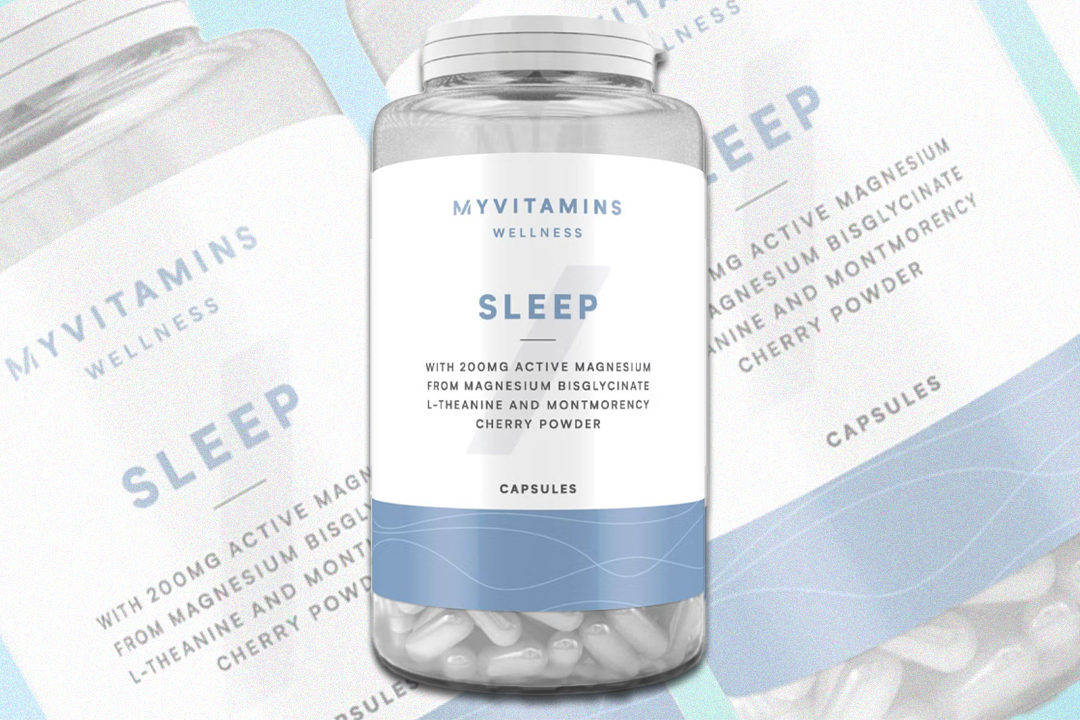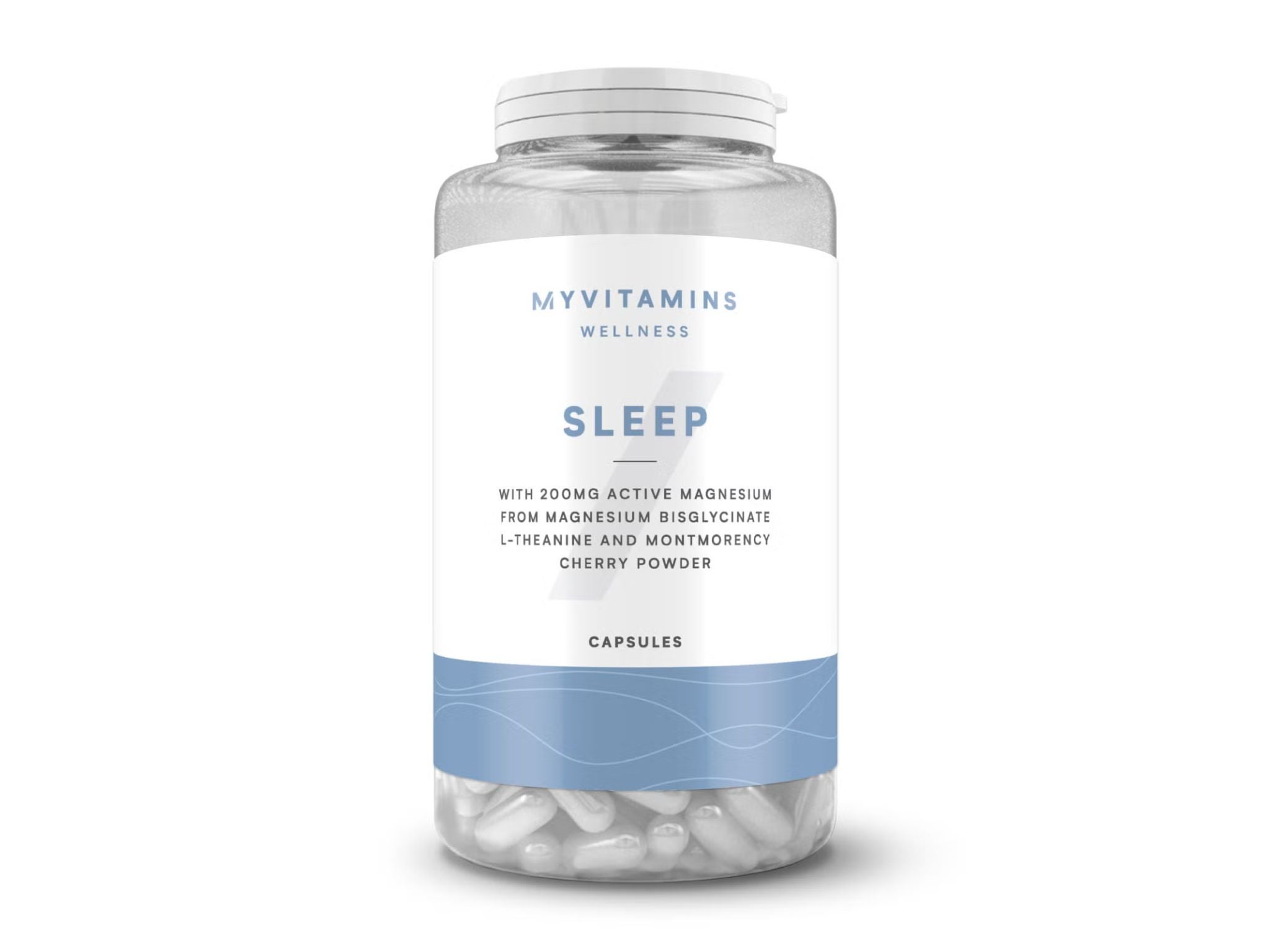I tried taking a sleep supplement for a week – here’s what happened
Could a sleep supplement stop me feeling sluggish in the mornings?

Your support helps us to tell the story
From reproductive rights to climate change to Big Tech, The Independent is on the ground when the story is developing. Whether it's investigating the financials of Elon Musk's pro-Trump PAC or producing our latest documentary, 'The A Word', which shines a light on the American women fighting for reproductive rights, we know how important it is to parse out the facts from the messaging.
At such a critical moment in US history, we need reporters on the ground. Your donation allows us to keep sending journalists to speak to both sides of the story.
The Independent is trusted by Americans across the entire political spectrum. And unlike many other quality news outlets, we choose not to lock Americans out of our reporting and analysis with paywalls. We believe quality journalism should be available to everyone, paid for by those who can afford it.
Your support makes all the difference.Sleep: we all do it, but not many of us do it very well. A blend of poor sleep quantity and quality has left a huge chunk of the world tired, so it makes sense that supplement companies would try to help solve this problem.
One of the latest to do so is Myprotein, with the brand recently releasing its simply named “sleep” capsules (£15.59, Myprotein.com). As you’d expect, they’re loaded up with magnesium, which has been heralded as a sleep-boosting, stress-busting super supp. There are also some less expected ingredients in these capsules, like Montmorency cherry powder.
As an early morning gym-goer and journalist, sleep is an area I need to work on, with my nightly slumber falling below the NHS-recommended seven hours (as a minimum) with alarming regularity. So, I decided to do a deep dive into the ingredients of Myprotein’s sleep capsules, then give them a try for a week to see if they could improve the quality of my kip.
What’s in the Myprotein sleep capsules?
The primary ingredient of the Myprotein sleep capsules is magnesium bisglycinate – more commonly known as magnesium glycinate. There’s 200g of the stuff per serving, which comes in the form of three capsules.
For reference, the NHS says “the amount of magnesium you need is 300mg a day for men and 270mg for women”, so these pills do most of the heavy lifting. Add magnesium-rich food like spinach, fish, nuts or wholemeal bread into the equation and you should easily hit this figure.
However, it is possible to achieve this target through wholefoods alone, which is why it’s always worth considering your existing diet before you splurge on new supplements. The NHS also recommends avoiding taking too much magnesium through supplements, but the Myprotein sleep capsules fall safely under the institution’s 400mg upper limit.
In our deep dive into magnesium supplements, Click Pharmacy’s Jana Abelovska explains that some research shows magnesium supplementation can help reduce muscle soreness, as well as lowering cortisol (sometimes referred to as “the stress hormone”).
Meanwhile, a 2022 study published in the Sleep journal suggested that, “individuals with higher magnesium intake are more likely to have the recommended duration of sleep” but found “the association [between magnesium intake and sleep quality] was only borderline significant in our study”.
Beyond magnesium, the other main active ingredients in the Myprotein sleep capsules are Montmorency cherry powder (200mg) and L-theanine (200mg). Montmorency cherries contain the sleep-regulating hormone melatonin, going some way to explaining their inclusion. However, the jury’s still out on their link to a solid sleep.
A Northumbria University article reported that “consuming tart cherry juice concentrate improved both the quality and duration of sleep”, but a separate 2022 study found in the Nutritional Health journal found it “does not impact sleep”, adding that “these results conflict with previous data on Montmorency tart cherry and sleep… therefore further investigation is warranted”.
Next up is L-theanine, an amino acid (the building blocks of proteins) which has been repeatedly associated with improved sleep and reduced anxiety. A small 2019 study published in the Nutrients journal found that taking 200mg per day of L-theanine for four weeks was associated with a reduction in sleep quality problems and stress.
Other noteworthy additions to the sleep capsules include 10mg of zinc and 1.4mg of Vitamin B6. Both represent 100 per cent of your daily nutrient reference value – EU guidance levels on the amount of a vitamin or mineral you need to avoid deficiency. Dietary zinc has previously been shown to play a role in sleep regulation, while B6 may improve brain function.
Did the Myprotein sleep capsules work for me?
Sleep is a highly individualised thing, and my current average snoozing time of between six and seven hours per night might be enough for some people. But as an active person prone to a post-lunch slump, I reckon I could do with a bit more.
My smartwatch has also flagged that the time I spend in deep sleep (pivotal for muscle and bone growth and repair) is pitifully low too, rarely venturing above 30 minutes – evidence seems to suggest that an hour or two would be more appropriate.
The problem is, the morning is the most productive period of my day, so I like waking up at the crack of dawn and heading straight to the gym for a pre-work workout. As a result, lie-ins aren’t an option.
My big hope going into this mini experiment was that the Myprotein sleep capsules could send my sleep quality soaring. I was keen to see if they could bump up my time spent in deep sleep, and help me conk out quicker to cram a few extra minutes into each night.
I realised this was a big ask after just a week, and realistically I’d need to report back after a month or more of taking the capsules for a more insightful assessment. But I did notice that, by the end of the week, I’d started to feel more sleep-ready in the final minutes before bed – whether this was down to the capsules or my newfound routine, which involved taking them 30 minutes before bed, I can’t say.
My deep sleep remained fairly consistent at around the 30-minute mark, however my Apple Watch reported far fewer disturbances or awake periods throughout the night. This was enough to persuade me to keep taking the Myprotein sleep capsules, and see if they could help me optimise my time between the sheets in the long run.
The sleep supplement to buy
Myprotein sleep: Was £19.99, now £15.59, Myprotein.com

With a blend of magnesium, L-theanine, Montmorency cherry powder and more, the Myprotein sleep capsules are designed to help you supercharge your slumber. And after using them for a week, I spotted some positive signs. You can currently pick up 30 servings for less than £16 in the Myprotein sale.
You can also get an extra 10% off almost everything with code MYPINDY (*T&Cs and exclusions apply).
Read more: Stanley Tucci got into the ‘best shape of his life’ at 63 with this training method




